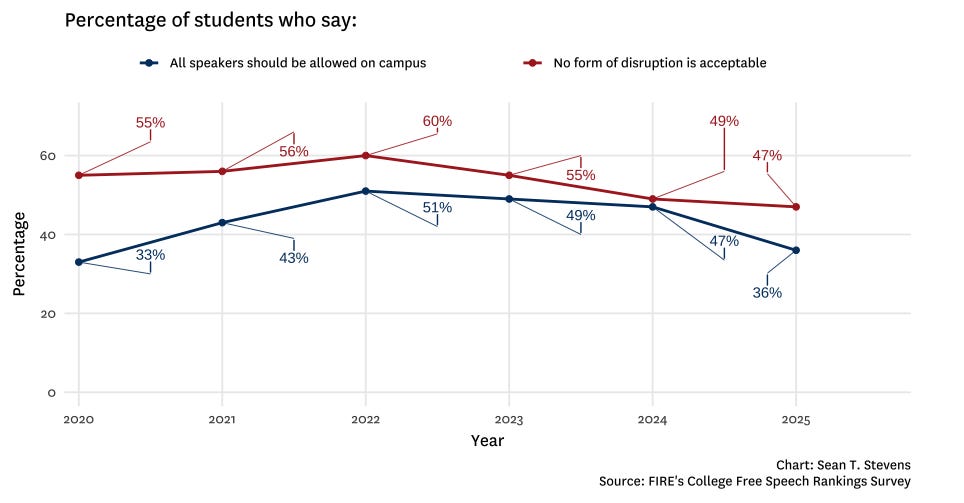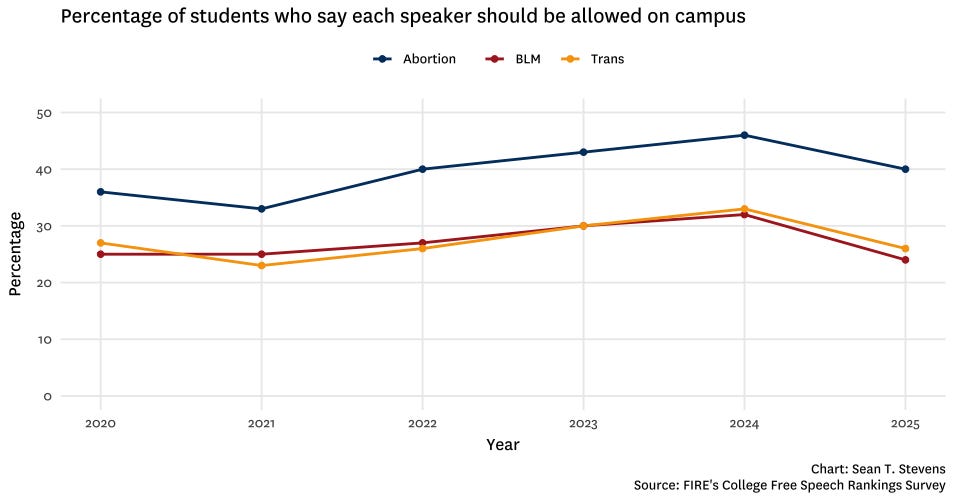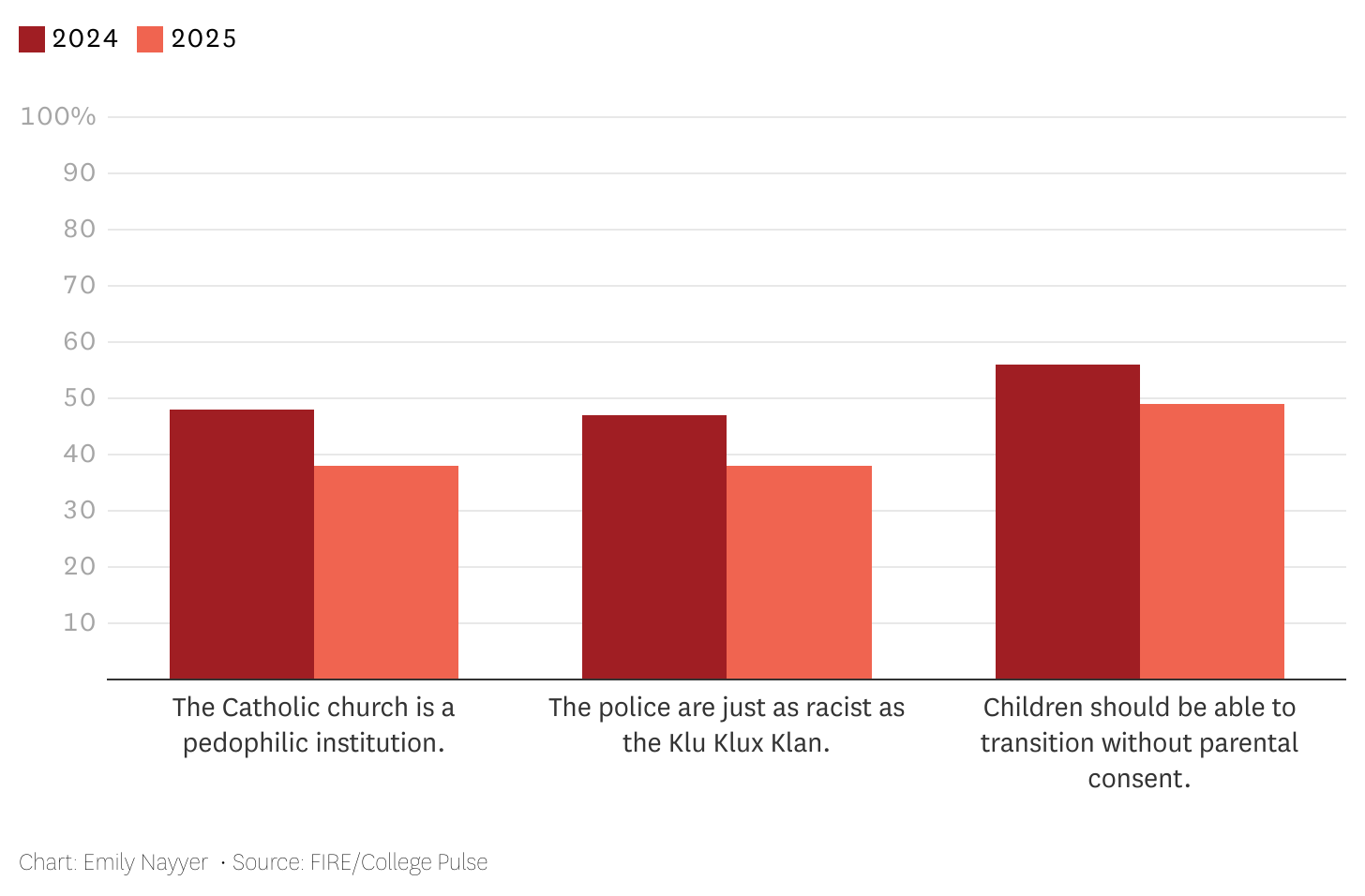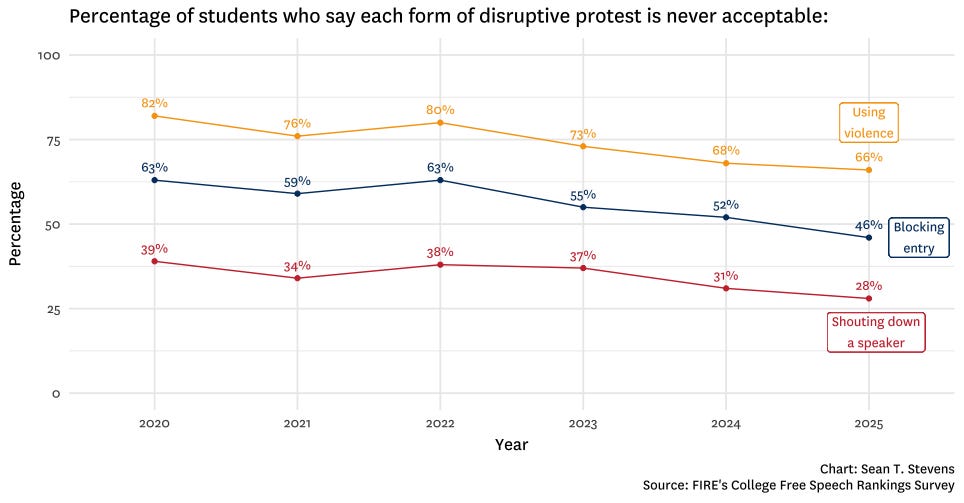Campus tolerance for free speech is tanking
Only 66% of students reject violence in protesting
Editor’s note: On Sept. 10, conservative pundit Charlie Kirk was assassinated on the campus of Utah Valley University. FIRE Executive Vice President Nico Perrino wrote about it here.
FIRE’s 2026 College Free Speech Rankings are out. This year, we expanded our survey from 251 to 257 schools, with a record 68,510 students, as well as a new and improved rankings website that offers insights into how we evaluate schools. Key findings include:
Only 66% of students reject violence in protesting, down from 82% in 2020.
For the first time, most students said their schools should not allow any of the controversial speakers we asked about, left or right.
If we look at the students who would allow all the controversial speakers asked about on campus, we see that while it’s never been particularly high, tolerance has declined from a peak of 51% in 2022 to only 36% this year.
Since 2020, we have asked students whether they think controversial speakers who have previously said something potentially offensive should be allowed on campus. We usually give students about six to eight hypothetical speakers to consider, using an equal number of liberal and conservative examples, and have recycled the following examples viewpoints every year:
Abortion should be completely illegal.
Black Lives Matter is a hate group.
Transgender people have a mental disorder.
As you can see above, tolerance for controversial speakers has generally increased since 2020 — until this year, when tolerance declined by at least six percentage points, and any gains made in tolerance for BLM and trans speakers during those five years essentially evaporated. Tolerance for the other three speakers we asked about this year — and who were introduced last year — declined as much if not more.
These declines coincide with a continued downward trend in students saying it is never acceptable for their peers to shout down a speaker, block entry to a campus event, or use violence to stop a campus speech.
They also coincide with record setting numbers of campus deplatforming attempts, attempted disruptions, and actual shout downs occurring in 2023 and 2024, with 2025 trending the same way. This should alarm anyone who cares about the future of free expression on campus. As support for open debate weakens and disruptive tactics become more commonplace, colleges risk abandoning their core educational mission.
FIRE’s updated rankings and redesigned website are incredibly powerful tools to help you monitor America’s education landscape and help us keep schools accountable to the values of free expression and open inquiry that we hold so dear.









